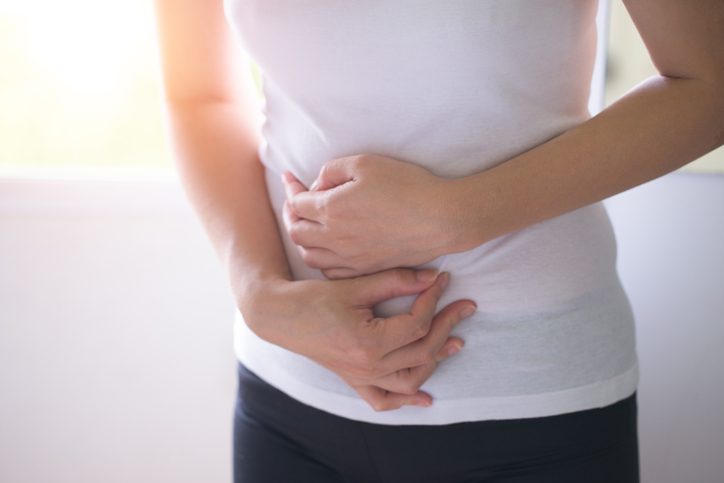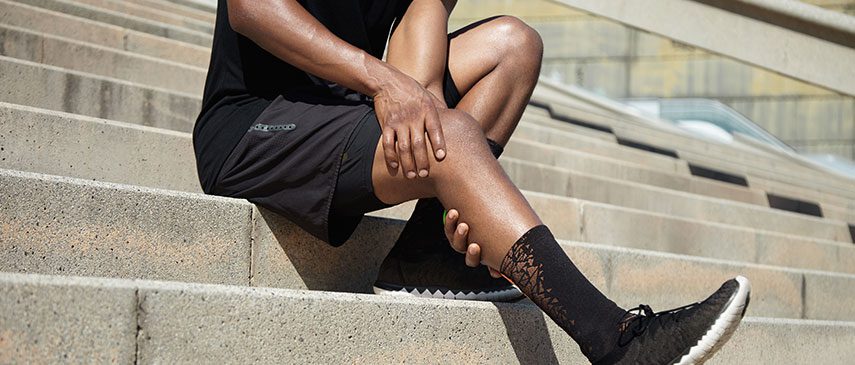7 signs you might be underfuelling

Training for a triathlon places a high energy demand on the body, and if you want to continue to train well without injury, it’s important that you eat enough to support your recovery. The more you train, the more you need to eat. For some runners and triathletes, it can be difficult to maintain this balance, so they end up under-eating and showing signs of Relative Energy Deficiency in Sport (RED-S). We spoke with runner and registered sports dietitian Stephanie MacNeill, who taught us some of the signs of underfuelling and how to avoid it.
Related: Red-S – what’s that?
MacNeill explained that a runner or triathlete might be underfuelling for a number of reasons, including concerns about weight and body composition, a lack of understanding about actual requirements to support training or having a lack of time to prepare and eat enough food. Either way, she says the following symptoms could be signs that you are under-eating:

You’re not sleeping well
Your body’s chief source of energy is glucose, which is also the most important source of fuel for your brain. When you under-eat, MacNeill says there may not be enough readily-available energy to support your brain’s activity as you sleep. If you find yourself constantly waking up throughout the night, that may be your body’s signal that it needs fuel.
You’re not getting your period
This one, of course, is only for the ladies, but MacNeill says that for female runners, not having a regular menstrual cycle is definitely cause for concern. The loss of your period indicates that your normal hormone function has been disrupted, which can contribute to low bone-mineral density and increase your risk for stress fractures. She adds that a regular menstrual cycle actually comes with performance benefits, because it helps regulate hormones that support muscle-building and recovery from exercise and helps support training at higher intensities.
You’re always getting injured or sick
“What a lot of athletes don’t realize is that every process in the body requires fuel, not just performing exercise,” explains MacNeill. “This includes things like digestion, breathing, circulation, and even the immune system.”
If you are constantly eating fewer calories than you need, your immune system isn’t able to work properly, which leaves you more susceptible to colds and infections. Additionally, without adequate fuel, your body will start to pull from its energy reserves in your bone and muscle, causing tissues in the body to begin breaking down and eventually leading to injuries.
Related: Concern over Red-S in male athletes
You have mood swings and you can’t concentrate
While your muscles do need fuel in order to exercise, your brain is actually the major consumer of energy in your body. A lack of fuel will not only make it hard to focus, but it can cause the levels of serotonin in your brainto fluctuate, making it difficult to control your mood.

You have digestive problems
When you under-eat, your digestive tract slows down, which can cause feelings of discomfort.
“Athletes may have a heightened sensitivity to feelings of fullness and bloating, which is actually very misleading,” explained MacNeill. “In extreme conditions, the stomach and gut begin to hurt, which leads some to think that they have food allergies, which is usually untrue.”
You’re not running as well
MacNeill says that you may experience an initial boost in performance when you’re underfuelling (usually because you lost some weight) but eventually, you’ll experience a rapid decline in performance, since your body will begin to prioritize more essential functions like breathing and controlling your heart rate.
RELATED: Corey Bellemore’s struggle with an eating disorder
Your hair and nails have seen better days
Thinning hair and brittle nails are another sign you’re not getting enough calories, because the systems involved in maintaining them are also not essential for life.
MacNeill’s tips to avoid underfuelling
To avoid the pitfalls of under-eating, do the following:
- aim to eat a meal or snack every three to four hours
- consider having a nighttime snack one to two hours before bed to improve sleep
- plan meals for the week and have some ‘ready to go’ snacks and meals for when time is limited
- Try to match carbohydrate intake to daily activity levels to fuel both your body during workouts and your brain
- Don’t shy away from fat. Eating enough fat will help to maintain normal hormone levels.
- Refuel post-exercise with carbohydrates and protein. Smoothies can be a great choice if your appetite is low after a run
- Try not to eat more than 25 to 38 grams of fibre per day, because too much fibre can make you feel full and discourage you from eating every three to four hours
- Meet recommended intake levels of vitamin D (600 to 800 IU daily) and calcium (around 1,000 mg daily for adults 19 to 50 years of age).
- Avoid unnecessarily excluding food groups.

